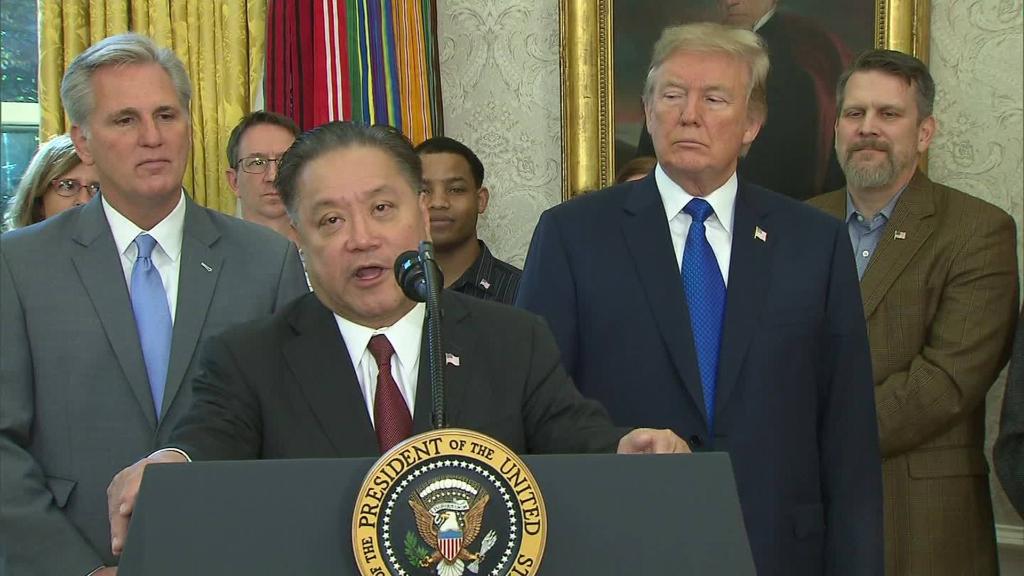
Why did President Donald Trump kill a $117 billion tech takeover? It's all about China and 5G.
The White House on Monday blocked a hostile takeover of US chip-maker Qualcomm (QCOM) by its rival Broadcom (AVGO), citing "credible evidence" that the deal would "impair the national security of the United States."
Here's what the United States is so worried about:
The race for 5G
US regulators have in recent weeks expressed concerns that the takeover could cause the United States to fall behind China in the race to develop 5G networks.
Qualcomm and Broadcom, which is moving its headquarters from Singapore to the United States, are both working to develop the super-fast fifth generation wireless broadband technology.
But the United States is worried that a takeover would dramatically reduce investment and research at Qualcomm, giving an advantage to China.
The US Treasury Department warned in a letter made public in early March that since Broadcom was financing the deal with over $100 billion in debt, it would be under pressure to squeeze more profits out of Qualcomm.
That could mean a significant reduction in spending on 5G research and development at Qualcomm, which totaled $5.5 billion in its most recent financial year.
The Treasury argued that Broadcom has a history of acquiring companies, and then slashing their spending on new technologies.
Broadcom said in a statement on Monday that it "strongly disagrees that its proposed acquisition of Qualcomm raises any national security concerns."
The letter from the Treasury was based on a review by the Committee on Foreign Investment in the United States, an inter-agency panel that vets deals between foreign and American companies.
Threat from China?
The Treasury argued in its letter that any setback to Qualcomm's development of 5G technology could allow Chinese competitors like Huawei to gain ground.
"If there's not a trusted domestic supplier of chips, everyone will have to go to a Huawei, or [another] foreign supplier," said Brian Fleming, an attorney at Miller & Chevalier who worked in the Justice Department's national security division under both Trump and former President Barack Obama.
The US government views Huawei -- one of the world's biggest telecommunications companies -- as a national security threat.
Congress issued a critical report on the Chinese tech firm in 2012 that effectively shut it out of the US market. Lawmakers accused the company of having close links to Beijing, and said it posed a threat to US national security.
The Chinese company has described the allegations as "baseless." A spokesperson for Huawei did not respond to a request for comment Tuesday.
The FBI warned US citizens earlier this year that they shouldn't buy smartphones made by Huawei.
Related: Why regulators think Broadcom's bid could hurt national security
Can US stay ahead of China?
Huawei's involvement in 5G technology could be inevitable because of the global collaboration required to develop the networks.
Qualcomm and Huawei have already conducted joint tests on 5G technology, and both companies are part of an international 5G alliance that includes Nokia (NOK), Ericsson and Intel (INTC).
And not everyone thinks the US national security concerns over the deal are justified.
"5G is a core piece of the franchise Broadcom is trying to purchase," Bernstein analyst Stacy Rasgon wrote in a note to clients before the deal was blocked.
Broadcom had vowed earlier this month that it would make the United States "the global leader in 5G." It also said it would also create a new $1.5 billion fund to train engineers in the country.
But that wasn't enough to convince Trump.
"The cases [against the deal] as laid out feel very weak to us, but politics is politics," Rasgon wrote earlier in March.
-- Julia Horowitz contributed to this report.


